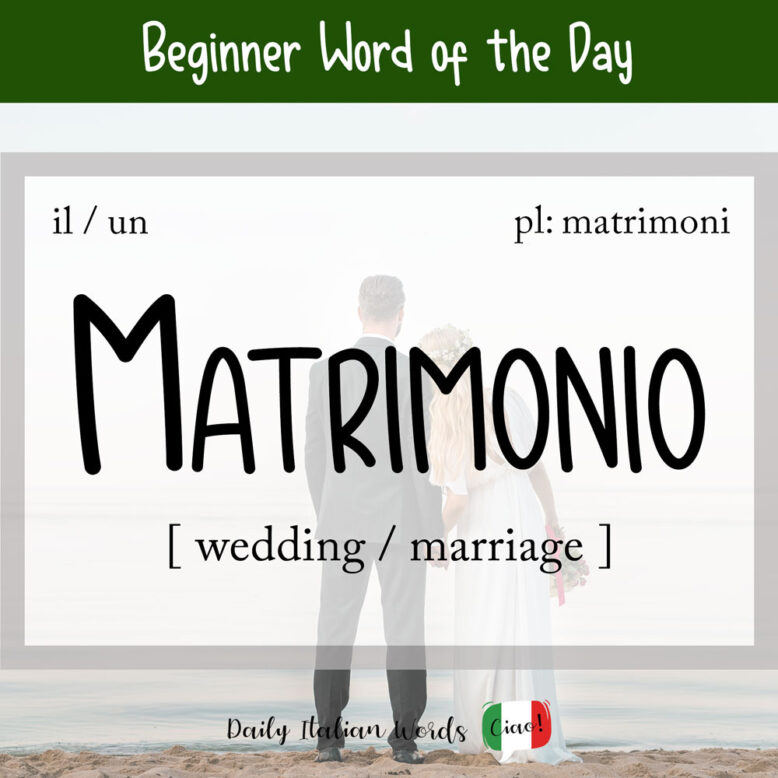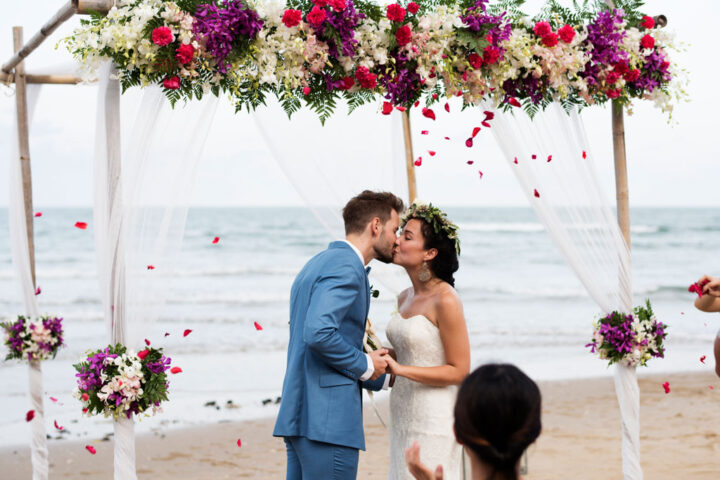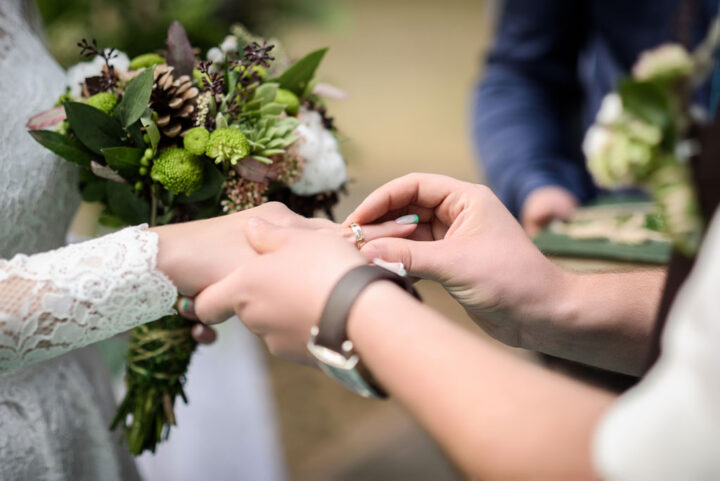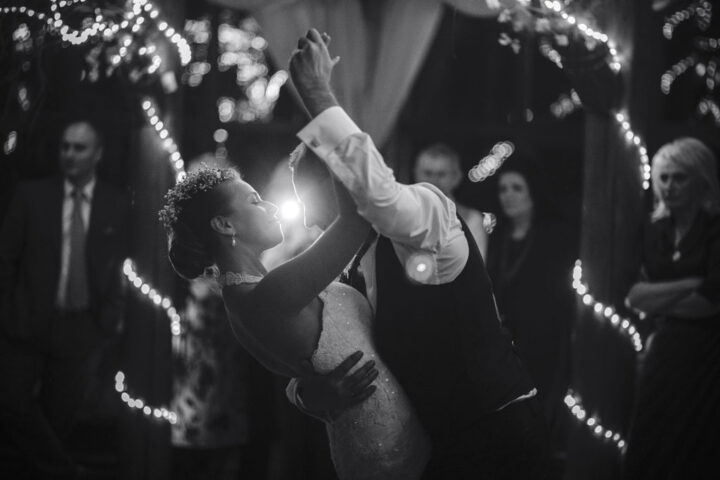In Italian, the word matrimonio (masculine, plural: matrimoni) can mean both wedding and marriage depending on the context.

If you’re struggling to remember this word, I’ve found that it helps to think of the English word matrimony.
Il matrimonio è durato otto mesi.
The marriage lasted eight months.
Il matrimonio si è tenuto in gran segreto in Umbria.
The wedding was held in secret in Umbria.

All weddings are preceded by an engagement (fidanzamento) period that may last mere days or even many years depending on the couple’s unique situation. Traditionally the man proposes (fa una proposta di matrimonio) but these days, it is becoming increasingly common for the woman to pop the question.
On the wedding day (giorno del matrimonio), the man wears a tuxedo (uno smoking) whereas women normally choose a white wedding dress (un abito da sposa bianco). The ceremony (cerimonia), which may be civil (civile) or religious (religiosa), concludes with the couple exchanging vows and wedding rings (scambiarsi le promesse e le fedi) in front of friends and family, and a marriage officiant joining them in matrimony (unirli in matrimonio).

Although not obligatory, many couples choose to hold an informal wedding party (festa di matrimonio) after the official ceremony, complete with food, dancing and live entertainment.

Most marriages in Italy are what Italians literally call “love marriages” (matrimoni d’amore) but across the world, arranged marriages (matrimoni combinati) and marriages of convenience (matrimoni di convenienza) are also common.
If you are invited to a wedding (invitato/a a un matrimonio), it is customary to bring a wedding present (regalo di nozze) for the happy couple, or in the case of Italian weddings, money in an envelope (una busta con dei soldi). Keep in mind that being invited to a wedding does not automatically mean you are invited to attend with a guest (presenziare con un compagno)!
In recent years, due to the elevated costs associated with holding a wedding, many couples opt for an elopement (fuga romantica, fuga con l’amante) instead of a large ceremony with friends and family.
“Matrimonio bagnato, matrimonio fortunato“
You may have heard the very popular Italian saying matrimonio bagnato, matrimonio fortunato (wet wedding, lucky wedding) or the closely related sposa bagnata, sposa fortunata (wet bride, lucky bride).
It is thought that these expressions were born as a way to console the bride and groom if the weather conditions on their special day end up being less than ideal.
Another more metaphorical interpretation stems from the ancient agricultural idea that women are like the earth in that both are capable of bearing fruit (children). For this reason, a bride showered with rain was thought to have a better chance of being “fruitful”.
Heather Broster is a graduate with honours in linguistics from the University of Western Ontario. She is an aspiring polyglot, proficient in English and Italian, as well as Japanese, Welsh, and French to varying degrees of fluency. Originally from Toronto, Heather has resided in various countries, notably Italy for a period of six years. Her primary focus lies in the fields of language acquisition, education, and bilingual instruction.


